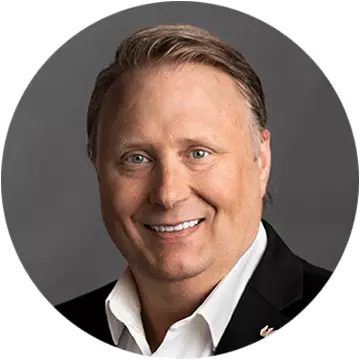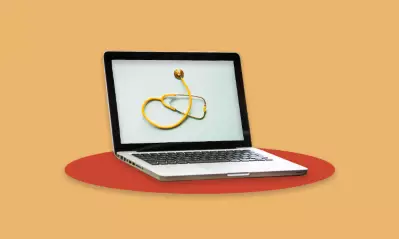Exploring healthcare compliance as a career
This article was updated on May 11, 2024.

Reviewed by╠²Mark J├│hannsson, DHSc, MPH,╠²Dean, College of Health Professions

that focuses on the safety and care of patients. In the U.S., compliance in healthcare is important because of the sheer size of the industry, the associated risks and the industryŌĆÖs dynamic nature. These factors create the possibility of fraud and abuse, which is where healthcare compliance comes in.
Read on to learn what healthcare compliance is, dive into what some of the laws surrounding it are, and explore healthcare compliance careers.
What is healthcare compliance?╠²
Healthcare compliance is the practice of adhering to local, state and federal healthcare laws and regulations, which prohibit and prevent fraud, abuse and waste in the healthcare industry. By adhering to laws and regulations in healthcare compliance, patients and professionals can help ensure the safety of all individuals in the healthcare industry.
Healthcare compliance extends far beyond adhering to rules, though. It's also a framework vital for ensuring the integrity and security of healthcare systems more broadly.
Healthcare compliance requires the active engagement and collaboration of various stakeholders, including healthcare providers, administrators, regulatory bodies, legal experts, policymakers and patients. Stringent protocols govern patient data privacy, cybersecurity measures to safeguard sensitive information, adherence to treatment standards for optimal patient care, and ethics to guide healthcare professionals. This multifaceted approach is essential not only for maintaining regulatory compliance but also for safeguarding patient welfare. As such, healthcare compliance jobs are important to help maintain the trust and integrity of the healthcare system.╠²
Healthcare compliance laws╠²
Many laws regulate the healthcare industry. While the following isnŌĆÖt an exhaustive list of laws and regulations, these are some important ones:
- Protects private patient information from being shared without a patientŌĆÖs knowledge or consent.
- : Expands the scope of HIPAA and provides healthcare facilities with certain standards for using IT to implement electronic health records.
- Ensures the public can access emergency treatment regardless of whether they can pay.
- Encourages the reporting, discussion and resolution of patient safety issues. It also authorizes the Agency for Healthcare Research and Quality to provide a database of patient safety organizations.
- Prohibits providers and organizations from receiving financial incentives for a patient referral when the federal government may be charged for those services.
- : Makes filing a false claim for federal program funds illegal and╠²punishable with fines, and the government can recover damages.
These laws are in place primarily to protect patients and ensure that all individuals have equitable access to healthcare in the U.S.
╠²
The importance of compliance in healthcare╠²
A compliance program in healthcare╠²is important because the stakes are so high.╠²Healthcare compliance and regulations:
- Protect patientsŌĆÖ privacy (including medical histories)
- Guard patient safety
- Encourage healthcare professionals to provide high-quality care to all patients
- Dictate╠²how to bill patients╠²properly
Upholding these professional and ethical standards promotes integrity within healthcare organizations and ensures the safety of all parties. Additionally, complying with health information technology laws and regulations can help protect against potential data breaches or╠²cybersecurity threats.
Ultimately, adhering to laws and regulations allows a healthcare organization to protect its patients and underscore its credibility.
The consequences of noncompliance╠²
Noncompliance in healthcare can lead to grave consequences, including legal actions. However, there are several other serious consequences that organizations and people can face if compliance standards are mishandled. Failure to comply with healthcare regulations may lead to patient harm, for example, which results in healthcare professionals potentially facing disciplinary actions that can impact their medical license.
If a healthcare organization is noncompliant, it can face fines and legal charges, not to mention a damaged reputation and loss of trust among patients and other stakeholders. Patients seek a high quality of care; if they are in the market for a new healthcare provider, it stands to reason they might choose one that hasnŌĆÖt been involved in a lawsuit or complaint.
Who is responsible for healthcare compliance?╠²
Everyone in a healthcare organization must adhere to the healthcare regulations established by the government. ItŌĆÖs the responsibility of every professional to make sure they are acting ethically and following laws. Many healthcare organizations have a compliance officer, or a similar role, to help ensure compliance.
Having someone in a designated role can help make it easier for a facility to coordinate or communicate with government agencies or third-party organizations that maintain healthcare compliance standards.
Multiple government agencies and a not-for-profit organization are involved in maintaining compliance programs:
- ╠²(DHS): A federal agency focused on improving AmericansŌĆÖ health, safety and well-being.╠²
- : A federal government agency tasked with combating drug trafficking and distribution in the U.S., including prescription drugs.
- : A not-for-profit institution that accredits and certifies healthcare organizations in the U.S.
- : An office within the DHS whose mission is to protect the integrity of DHS programs through audits and investigations.
- : An entity that regulates the information that must be included and disclosed about prescription drugs. The FDA also approves or disapproves prescription drugs to be used in healthcare.
These entities can provide resources and guidance on any healthcare compliance issues you might encounter.
Careers in healthcare compliance╠²
Pursuing a career in healthcare compliance offers individuals an opportunity to uphold the integrity and ethical standards needed in healthcare. Skilled professionals in healthcare compliance are needed as medical systems evolve.
Whether youŌĆÖre pursuing an undergraduate degree, an advanced degree or a certificate in healthcare, Ų▀╔½╩ėŲĄ has plenty of opportunities for you to enhance your career and learn more about the world of healthcare compliance.╠²

ABOUT THE AUTHOR
A graduate of Johns Hopkins University and its Writing Seminars program and winner of the Stephen A. Dixon Literary Prize, Michael Feder brings an eye for detail and a passion for research to every article he writes. His academic and professional background includes experience in marketing, content development, script writing and SEO. Today, he works as a multimedia specialist at Ų▀╔½╩ėŲĄ where he covers a variety of topics ranging from healthcare to IT.

ABOUT THE REVIEWER
Mark J├│hannsson is the Dean of the╠² College of Health Professions. He has a career spanning over 35 years of healthcare management, public health practice, higher education administration, teaching and clinical/behavioral research within corporate, community and academic settings. He has served as both an educational and keynote speaker, and he has been published in a variety of peer-reviewed and periodic literature.
This article has been vetted by Ų▀╔½╩ėŲĄ's editorial advisory committee.╠²
Read more about our editorial process.



